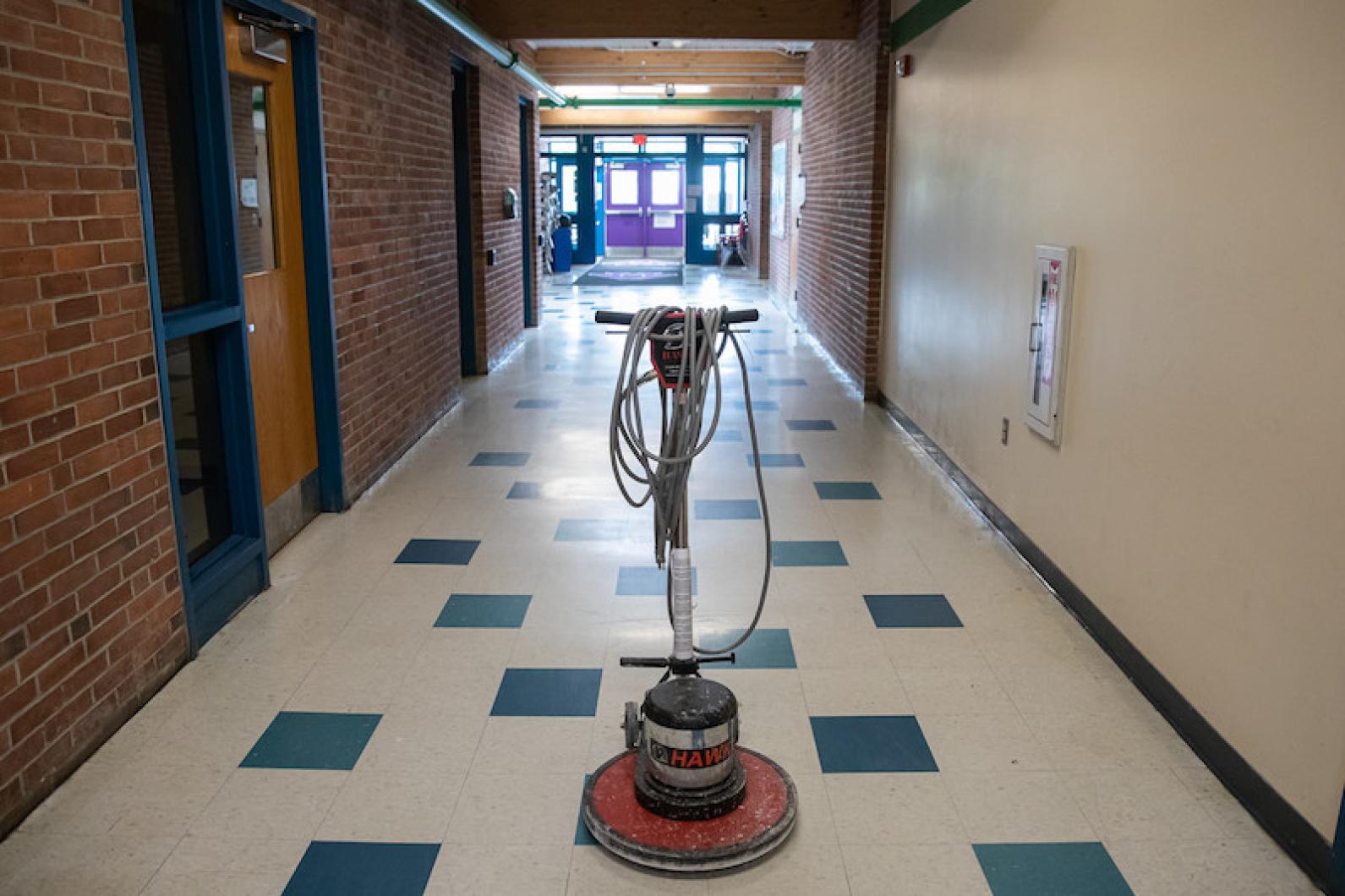Hybrid learning is now set to begin Jan. 11 at the Martha’s Vineyard Regional High School, after a vote by the district school committee early this week.
Pending final signoff by the superintendent of schools, it will mark the next step in a protracted re-opening process at the high school, which has been largely remote since school began in September. In-person learning is still restricted to students with high needs.
The plan to bring students back to the building under a cohort-based hybrid model has been on the table for just over a month, but was slowed when a fast-growing spike in virus cases on the Island cropped up.
At the district school committee meeting Monday, high school principal Sara Dingelgy proposed a concrete start date for hybrid learning on Jan. 11, absent a severe uptick in positive virus cases on the Island.
The date was chosen based on a recommendation from the all-Island health and safety subcommittee, Ms. Dingledy said. The new-year start date will allow the school to minimize the risk of school exposure brought on by holiday traveling.
“I am an educator, I respect the health advice of our physicians and our health agents,” Ms. Dingledy told the committee. “That is the date, we are going to meet it, we have to meet it [and] I feel all of us are advocating strongly to get the students in the building.”
According to a survey of the student body sent out last week, under the proposed hybrid plan, 40 per cent of high school students plan to remain entirely remote next term, while 60 per cent plan to opt into in-person learning, Ms. Dingledy said. Details of the hybrid plan will be determined by final enrollment data, she said.
The proposed start date saw a flurry of negative feedback from parents and committee members, many of whom expressed dismay at the choice to postpone in-person learning until the new year.
Liza Williamson, a parent who is the clerk-magistrate for the Edgartown district court, expressed particular concern about the consequences of out-of-school learning on student mental health.
“Since the pandemic started, at the Edgartown district court we have had such an uptick in restraining orders and commitments for drugs and alcohol. More than 50 per cent of those restraining orders and commitments had children K through 12 living in those homes,” Ms. Williamson said. “I’m very concerned. If anything, people are realizing how important and how amazing school is. It’s really a safety zone for so many children in our community.”
Others worried that a potential future outbreak on the Island could further delay reopening.
But committee member Amy Houghton urged patience.
“I just think that an important part of this whole construct is that if things are really testing high, we have to have the ability to be safe for our teachers, our staff and our students,” Ms. Houghton said. “I don’t think that we can just say we’re going full-forward if that’s not the case on the Island and I think that we all know that.”
Bringing the debate to a close, Ms. Houghton moved to accept the hybrid plan, but authorize superintendent Matthew D’Andrea to decide the date of reopening, based on advice from Ms. Dingledy, the health and safety committee and other Island professionals.
The committee voted 8-1-0 in favor of the motion, with committee member Robert Lionette casting the lone nay vote.
In other business Monday, the committee heard updates on the FY22 budget. Committee member Kris O’Brien, who sits on the budget subcommittee, said the budget is up 5.6 per cent over last year to date, with increases split incrementally across multiple areas, including transportation, insurance and facilities.
A public hearing on the budget is set for Dec. 22.
Also Mr. D’Andrea announced the start of the state-sponsored Abbot BinaxNOW testing program for symptomatic testing in the public schools. Each school building is set to receive test kits this week, he said.







Comments (1)
Comments
Comment policy »